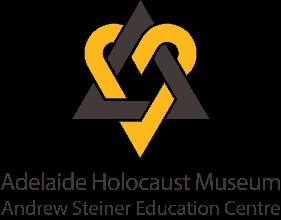The new Adelaide Holocaust Museum and Andrew Steiner Education Centre (AHMSEC) is being officially launched on Monday 9 November in the heart of the CBD. With the generous support of the Catholic Archdiocese the museum is housed in the historic Fennescey House at 33 Wakefield Street.
The launch coincides with the commemoration of Kristallnacht or Night of Broken Glass. On November 9 to November 10, 1938, the, Nazis in Germany torched synagogues, vandalized Jewish homes, schools and businesses and killed close to 100 Jews. In the aftermath of Kristallnacht, some 30,000 Jewish men were arrested and sent to Nazi concentration camps.
Marking the launch of a Holocaust museum on the anniversary of Kristallnacht serves as a poignant reminder that the Holocaust was not inevitable. The lens of history provides important insights to recognise signs that could lead to genocide and encourage individuals and governments to take action to ensure that such atrocities do not happen again.
By telling the stories of the Holocaust, AHMSEC will educate and inspire South Australians to stand up against antisemitism and racism, and actively contribute to a fairer, more just, and compassionate world.
The permanent, self-guided Holocaust exhibition is posed as a series of questions to stimulate critical thinking and help visitors especially young people, to understand how and why the Holocaust happened. Throughout the exhibition visitors will encounter historical artefacts, personal objects and photographs which intersect with stories of six local survivors.
The museum features four galleries. The permanent exhibition is housed in the Anne Frank Gallery which has been endowed by John and Pauline Gandel AC. Principal Partner, Gandel Foundation provided the lead capital pledge to fund the design, fit-out and curation of the Holocaust exhibition.
Gandel Foundation CEO, Vedran Drakulic OAM said “the Gandel family is honoured to enable South Australians, particularly school students, to visit a museum and learn about the history and the messages of the Holocaust, its relevance today and the importance of human rights. Mr and Mrs Gandel feel that endowing the main gallery in the name of Anne Frank, who was only 15 when she died in the Bergen-Belsen concentration camp, offers young people the opportunity to connect, empathise and relate to one the most well-known of the six-million Jews who died in the Holocaust.”
The Lefmann Gallery will feature the stories of six local Adelaide survivors reflecting the resilience of the human spirit. The Jack and Robert Smorgon Families Foundation Gallery houses the museum’s education centre which will host a range of school and public access programs.
AHMSEC will offer school curriculum-tailored Holocaust education programs. The Department for Education and Minister for Education, Hon. John Gardner MP generously provided funds for the development of the education program which will be rolled out to schools in 2021.
AHMSEC Chair, Nicola Zuckerman said “the aim of our programs is to demonstrate that antisemitism existed before the Holocaust, still exists today and is in fact, increasing in prevalence around the world. Combating antisemitism and racism in all its forms is a virtue AHMSEC hopes to instill in all who visit the museum.”
The Franz Kempf Memorial Gallery, a smaller fourth gallery, is dedicated to the memory of Franz and will feature works by the late artist known as the Holocaust series.
AHMSEC honours the six million Jewish victims of the Holocaust and millions of other victims of Nazism. Our programs reflect the necessity to nurture human rights to prevent such atrocities in the future.
With momentum and awareness building toward the launch, AHSMEC is uncovering more local hidden Holocaust stories and continues to need support and donations to sustain operations.
Adelaide Archbishop Patrick O’Regan congratulated Andrew Steiner and the AHMSEC Board for bringing to fruition their vision for a Holocaust museum in Adelaide.
“The Adelaide Archdiocese is pleased to play a small part in this important initiative as part of our ongoing commitment to enhancing interfaith relations and promoting peace and harmony,” he said.
AHMSEC is excited to welcome visitors and we have reviewed our operations to ensure we remain COVID Safe for our visitors and staff. Due to limited capacity, bookings and further details will be available on the website from Tuesday, 10 November.
- Ends –
Adelaide Holocaust Museum and Andrew Steiner Education Centre (AHMSEC)
AHMSEC is inspired by the vision and work of Andrew Steiner OAM, an Adelaide based sculpture and Holocaust survivor. He has offered Holocaust commemoration and reflection to South Australian secondary schools for the past 30 years. With his late wife Helen, Andrew founded the Remember the Holocaust Compassion for All Foundation to establish a capital fund for the development of the museum.
The museum will offer access to a permanent Holocaust exhibition, tracing the history of the Holocaust and encouraging critical thinking around themes from the Holocaust that remain relevant to issues in contemporary society such as hate-speak, antisemitism, racism and acts of terror right. The museum will focus on the importance of “positive citizenry “and benefits of being an ”Upstander” for others and show how one person can make a difference in their community.
Open to the public: from 17 November
Open: Tuesday, Wednesdays, Thursdays and Sundays
Times: Weekdays 10am to 4pm and Sundays 11am – 3pm
Closed: Saturdays and some Jewish holidays and public holidays
Website: www.ahmsec.org.au
Enquires: admin@ahmsec.org.au

